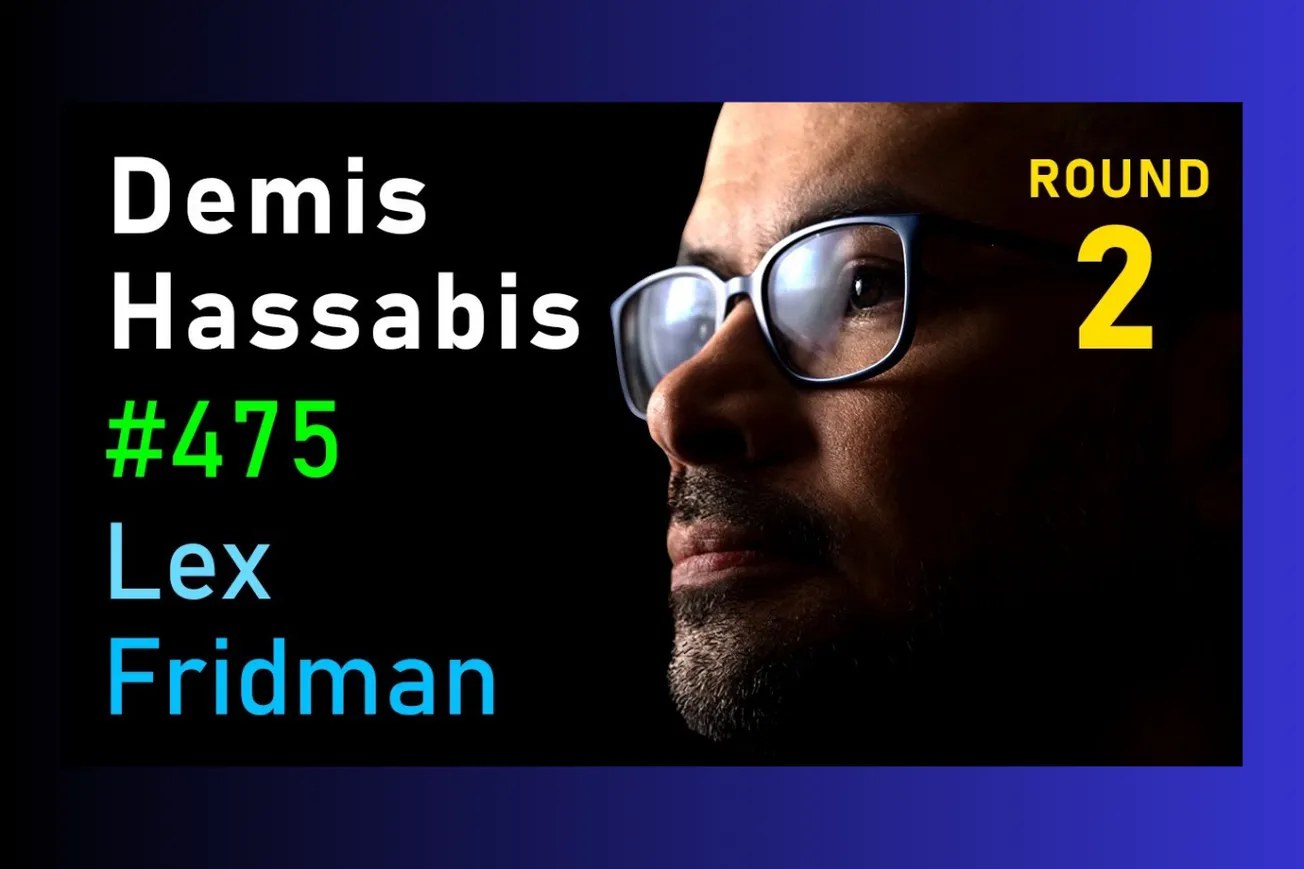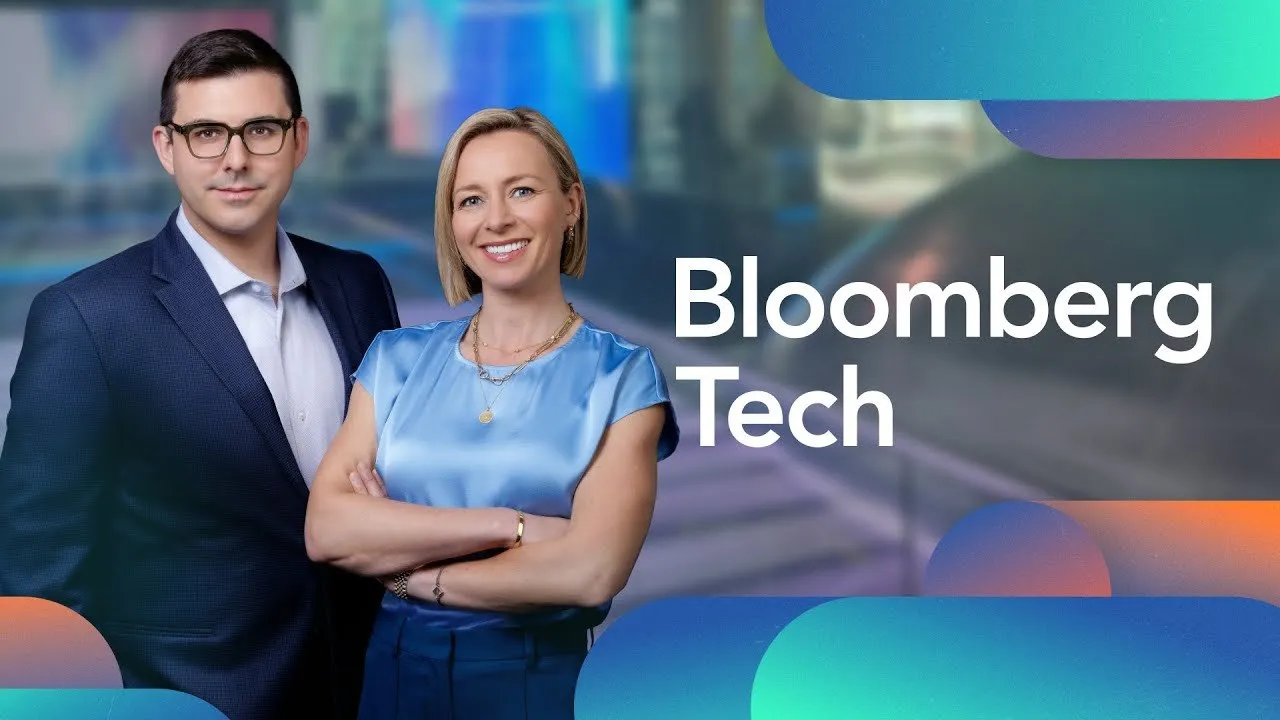Table of Contents
Google DeepMind's leader discusses AGI timelines, breakthrough discoveries, and how artificial general intelligence could transform science, gaming, and human civilization within the next decade.
Key Takeaways
- AGI has a 50% probability of arrival by 2030, requiring systems that match human cognitive functions across all domains
- Natural systems follow discoverable patterns due to evolutionary processes, making them efficiently modelable by classical learning algorithms
- Video generation models like Veo demonstrate surprising understanding of physics through passive observation alone
- Future games will feature AI-generated worlds that adapt dynamically to individual player choices and imagination
- Energy abundance through fusion or advanced solar could enable radical transformation to a Type 1 civilization
- The transition to AGI will bring 10x the impact of the Industrial Revolution but happening 10x faster
- Scientific breakthroughs like protein folding and weather prediction showcase AI's potential for accelerating human knowledge
- Post-AGI society may require new governance structures and resource distribution mechanisms like universal basic provision
- Human-AI collaboration rather than competition offers the most promising path forward for beneficial outcomes
The Nobel Conjecture: Nature's Hidden Computational Structure
Demis Hassabis opened with his provocative Nobel Prize lecture proposition: any pattern discoverable in nature can be efficiently modeled by classical learning algorithms. This conjecture stems from observing how natural systems develop structure through evolutionary pressures over vast timescales.
- Evolutionary selection creates learnable patterns because systems surviving multiple iterations develop non-random structures that can be reverse-engineered
- Protein folding demonstrates this principle as physics solves the problem in milliseconds while evolution shaped proteins over billions of years
- Classical systems exceed previous expectations by mastering complex domains like Go and protein structure prediction without quantum computing
- Geological and cosmological systems follow similar rules with mountain shapes, planetary orbits, and asteroid formations all subject to repeated selection processes
- The approach fails for truly random systems like factoring large numbers unless hidden patterns exist in mathematical spaces
- Neural networks excel at following gradients which explains their success when underlying energy landscapes or objective functions provide structure
The implications extend far beyond biology. "If you think about protein folding which is obviously a natural system, why should that be possible? How does physics do that? Proteins fold in milliseconds in our bodies," Hassabis explained, highlighting how nature consistently solves computationally intensive problems.
This perspective reframes artificial intelligence not as competing against nature's complexity, but as discovering the underlying computational principles that make natural systems tractable. The conjecture suggests vast domains of scientific inquiry may be accessible to classical computing approaches previously thought to require quantum systems or brute force methods.
Redefining Computational Complexity Through AI Breakthroughs
The conversation delved into fundamental questions about P versus NP and whether AI systems might define new complexity classes for naturally occurring problems. Hassabis envisions "learnable natural systems" as a distinct category of computational challenges.
- Classical systems achieve polynomial-time solutions for problems like protein folding and Go that appeared exponentially complex through enumeration
- Information theory provides the foundational framework with Hassabis viewing the universe as fundamentally informational rather than energy-based
- Neural networks model environmental dynamics enabling efficient search through combinatorially vast spaces by learning system properties
- The P equals NP question becomes a physics question when considering the universe as an informational system with computational constraints
- Current AI proves classical systems' underestimated potential by solving problems previously thought to require quantum or exotic computing approaches
- Future breakthroughs may require new architectural innovations beyond scaling current approaches, demanding fundamental research advances
"I think information is primary. Information is the most fundamental unit of the universe more fundamental than energy and matter," Hassabis stated, positioning computational complexity theory as central to understanding physical reality itself.
The discussion highlighted how AlphaGo and AlphaFold represent not just impressive engineering achievements, but fundamental discoveries about the computational nature of complex systems. These successes suggest classical learning algorithms may have far broader applicability than previously recognized.
Video AI Reveals Surprising Physics Understanding
The capabilities demonstrated by video generation systems like Veo challenged long-held assumptions about embodied intelligence and physical understanding. The system's ability to model fluid dynamics, lighting, and material properties suggests profound implications for AI's comprehension of reality.
- Passive observation enables physics learning contrary to theories requiring embodied interaction for deep physical understanding
- Video models extract underlying material behaviors from YouTube training data without explicit physics programming
- Hydraulic press videos showcase sophisticated dynamics with clear liquids being squeezed through complex transformations
- Lower-dimensional manifolds may underlie reality allowing efficient compression of seemingly complex physical processes
- Traditional physics engines pale compared to learned models despite decades of painstaking programming effort
- Intuitive physics emerges from statistical patterns similar to how human children develop physical understanding before formal education
"I used to write physics engines and graphics engines in my early days in gaming. And I know it's just so painstakingly hard to build programs that can do that. And yet somehow these systems are reverse engineering from just watching YouTube videos," Hassabis observed.
This represents a fundamental shift in understanding how intelligence can acquire knowledge about the physical world. The success challenges embedded assumptions about the necessity of direct interaction for developing sophisticated models of reality.
Gaming's Renaissance Through AI-Powered Worlds
Hassabis's gaming background provides unique insight into how AI could revolutionize interactive entertainment. His vision extends beyond current procedural generation to truly responsive, imaginative world-building systems.
- Open-world games become truly personalized experiences where every player's journey creates unique content tailored to their choices
- Procedural generation evolves into intelligent adaptation moving beyond random creation to meaningful, dramatic storytelling
- AI characters develop genuine learning capabilities similar to the creature system in Black & White but exponentially more sophisticated
- Interactive video technology enables exploration of generated content rather than passive consumption of predetermined sequences
- The choose-your-own-adventure concept reaches full potential with AI dynamically creating compelling narratives regardless of player decisions
- Traditional game development constraints disappear as AI generates unlimited content without massive asset creation costs
The potential extends beyond entertainment into educational and therapeutic applications. Games become laboratories for exploring human psychology, decision-making, and social interaction in controlled yet infinitely variable environments.
Hassabis emphasized how games serve as "great little microcosm simulations of the world" that allow practice of decision-making skills in safe, repeatable environments. AI-powered gaming could amplify these benefits while providing unprecedented personalization.
Scientific Discovery Acceleration Through AI Partnership
The application of AI to scientific research represents perhaps the most transformative potential of advanced systems. Hassabis outlined a vision where AI becomes humanity's primary tool for unlocking nature's deepest mysteries.
- Virtual cell simulation could revolutionize biology by enabling in-silico experiments that dramatically reduce wet lab time and costs
- Alpha Fold's success demonstrates protein structure prediction while Alpha Fold 3 tackles the more complex challenge of molecular interactions
- Weather prediction systems outperform traditional approaches using neural networks instead of massive fluid dynamics calculations
- Origin of life questions become computationally tractable through simulation of chemical evolution from primordial conditions
- Research taste and hypothesis generation remain uniquely human requiring the ability to identify promising directions amid infinite possibilities
- Collaborative human-AI teams maximize discovery potential combining human insight with AI's computational and pattern recognition capabilities
"The hardest part of science is picking the right question," Hassabis noted, highlighting the continued importance of human judgment in directing AI capabilities toward meaningful discoveries.
The discussion of "research taste" illuminates a crucial distinction between solving known problems and identifying which problems deserve investigation. This meta-cognitive capability may represent one of the final frontiers in achieving truly autonomous scientific discovery.
AGI Timeline and Transformation Challenges
Hassabis provided concrete estimates for AGI development while acknowledging the profound societal challenges that will accompany such systems. His 50% probability estimate for AGI by 2030 comes with detailed criteria for recognition.
- True AGI requires consistency across all cognitive domains rather than the current "jagged intelligence" profile of specialized capabilities
- Testing involves thousands of cognitive tasks plus evaluation by world experts across multiple disciplines for several months
- Lighthouse moments like scientific breakthroughs will provide clear indicators, such as discovering new physics principles or inventing games as elegant as Go
- Economic disruption will exceed the Industrial Revolution with 10x the impact occurring 10x faster than previous technological transitions
- Universal basic provision may become necessary as AI systems replace human labor across increasingly broad domains
- New governance structures will be required to manage rapid technological and social transformation
- International cooperation becomes critical for managing both benefits and risks of advanced AI systems
The transition period presents unprecedented challenges for human adaptation. "Instead of 100 years, it takes 10 years. So that's going to make it more difficult for society to deal with," Hassabis warned about the accelerated pace of change.
Consciousness, Humanity, and Our Cosmic Future
The conversation concluded with profound questions about consciousness, human specialness, and our species' ultimate destiny. Hassabis envisions AI as the key to unlocking humanity's cosmic potential while preserving what makes us uniquely human.
- Consciousness may involve substrate-specific properties that distinguish carbon-based from silicon-based information processing
- Brain-computer interfaces could enable direct experience of what computation feels like on different substrates
- Energy abundance through fusion or advanced solar could eliminate resource scarcity and enable space expansion
- Type 1 civilization status becomes achievable within 100 years through unlimited clean energy and advanced AI
- Asteroid mining and space colonization follow naturally from cheap energy and self-landing rocket technology
- Human flourishing reaches maximum potential when freed from zero-sum resource competition
- Consciousness exploration becomes possible through AI tools that help us understand the nature of subjective experience
"I think of the universe as a kind of informational system," Hassabis reflected, suggesting that understanding consciousness may require viewing it as information processing rather than purely biological phenomena.
The vision encompasses both tremendous opportunity and responsibility. Advanced AI could enable humanity to "bring consciousness to the universe, waking up the universe" as Carl Sagan envisioned, but only if we successfully navigate the transition period.
Common Questions
Q: What is Demis Hassabis's timeline for achieving AGI?
A: He estimates a 50% probability of AGI by 2030, requiring systems that match human cognitive functions consistently across all domains.
Q: How will we know when we've achieved true AGI?
A: Through testing thousands of cognitive tasks, expert evaluation across disciplines, and breakthrough achievements like discovering new physics principles.
Q: What makes natural systems learnable by AI?
A: Evolutionary processes create non-random structures over time, making natural systems more tractable than purely random mathematical problems.
Q: How might AGI impact employment and society?
A: The transition could have 10x the impact of the Industrial Revolution happening 10x faster, potentially requiring universal basic provision systems.
Q: What role will humans play in an AGI world?
A: Humans will likely focus on creative direction, research taste, and collaborative work with AI systems rather than competing directly.
The Path Forward: Collaboration Over Competition
The extensive discussion reveals both tremendous promise and significant challenges ahead. Artificial general intelligence represents humanity's next great leap forward, potentially solving our most pressing problems while creating entirely new categories of opportunity and risk.
Success depends on maintaining international cooperation, developing appropriate governance structures, and ensuring that AI development serves humanity's broader flourishing rather than narrow competitive interests.





